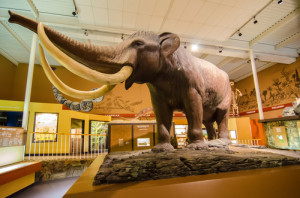
What can you do with a degree in history? There are tons of career paths to consider, from becoming a teacher to working in a museum. It’s just a matter of choosing which path is right for you. Here, you will find some specific areas of study in history, schools with notable history programs, and a handful of career options to get your search started.
Types of History
When you take on the study of history, you will learn about many different types of history, including famous people in history. You can earn a bachelors degree in history and go on to explore options for a masters degree in history or a more specific branch. Just a few types of history you may learn about are listed below.
Art History – study of how the social concept of art has changed over centuries, including various mediums (i.e., wood burning, oil paints, pencils); plays a major role in allowing today’s society to understand those of the past
Military history – study of wars throughout history encompassing countries across the globe
Cultural history – study of past cultures, including how they compare to cultures today
Economic history – study of past economies throughout the world
World history – general study of history based on changes across the globe
How to Get a Degree in History
Many higher education facilities offer excellent history programs to students around the world. Here, you will find schools with some of the best history programs based on this list by College Atlas.
Falling in at number 1 on the list of Best History Colleges of 2012-2013 is Princeton University. Founded in 1746 before the American Revolution, this private research Ivy League school offers its students a bachelors degree in history and the choice of a specific area of study such as Ancient Greece, Europe, Middle Ages, and more. Students complete a thesis by their senior year to demonstrate their understanding and the knowledge they gained from taking courses like the Greek World in the Hellenistic Age, Financial History, and War in the Modern Western World. The university’s history department contains the most faculty who have earned the school’s President’s Award for Distinguished Teaching. See the school’s website for information on master degrees and doctoral degrees in various areas of history.
Columbia University is also on the list, its history program sitting at number 6. Another private Ivy League university, Columbia focuses on its undergraduate students’ ability to succeed after graduation, preparing them for further education in the university’s graduate program or stepping out into the workforce. Offering areas of study including Historic Preservation, History and Literature, History and Theory of Architecture, and more, the university’s history department is one of the top in the world.
Ohio State University is number 25 of the top 50 schools with outstanding history programs. It provides undergraduates to earn bachelor degrees in everything from History of Art to Ancient History and Classics among others like Film Studies and Theatre. History courses help students learn critical reading and writing methods, as many courses require research papers and have essay-based exams, as well as how to develop analytical arguments. After earning a bachelors degree, students have the option of applying to one of the public research university’s graduate school programs in which they can earn a masters degree and/or a doctoral degree in either history or, more specifically, art history.
Careers in History
If you have officially decided to explore the large realm of history, then it is time to look more closely at career options available to people with history degrees. Here is where you will find just a few career paths you may qualify for once you earn a degree in history, whether it is a bachelors degree, masters degree, or maybe even a doctoral degree.
Entry Level Careers with a History Degree
With a bachelors degree in history or related field, you will qualify for many career paths. Check out the ones listed below to find one that seems most interesting to you.
Historical Documentary Editor
With a bachelors degree in history, it is possible to land an entry level position as a historical documentary editor. Not to be confused with film editing, historical documentary editors are responsible for reviewing actual historical documents for accuracy. Entry level positions are often responsible for chronologically organizing these documents and, if necessary, finding correct dates for said documents if dates are not provided among other duties. Historical documentary editors need excellent attention to detail and fantastic organizational skills.
Entry level historical documentary editors can make around $35,000 to $40,ooo a year, depending on experience and education.
High School History Teacher
Do you want to give back to the school system that helped shape who you have become? Do you enjoy working with teenagers? Then getting a job as a high school history teacher may be the right path for you. High school history teachers educate the adolescent minds in everything from society trends of the Renaissance Era to the infamous American stock market crash and the Great Depression. In order to become a history teacher, you need at least a bachelors degree in either history or history education. To be an effective and successful teacher in any subject, it is important to get the students involved in your lessons. Teachers must also be highly personable so students feel comfortable enough to approach you after class for assistance or asking questions during class. Sufficient knowledge of programs such as Microsoft Office is also important for creating tests and handouts, and familiarity with databases can help when recording and computing grades.
As a history teacher with a bachelors degree in history, you can start out at a salary of around $36,000.
Archivist
Archivists help make historical documents and information accessible to researchers. They typically work for governments, businesses, museums, schools, and even libraries. With the growth in technology, archivists spend quite a bit of time transferring historical information into computer databases. Other job duties include answering inquiries of students, researchers, and the general public in regard to historical documents and information. They also provide proper storage and preservation techniques for physical documents. Necessary skills include a strong ability to organize and record documents and data as well as excellent written and verbal communication in order to assist inquiring individuals.
Archivists can make an average salary of around $46,000 a year.
Advanced Careers with a History Degree
After achieving a masters degree or doctoral degree in a specific field of history, you are certain to qualify for even more careers in history. Some of these career options are described here.
Paralegal
Many people with history degrees actually go on to law school. Law is a bit easier to study once you have a basic background in history. Therefore, it is possible for you to earn a paralegal certificate. Paralegals often create legal documents by researching and analyzing facts and performing other office duties for lawyers. It is important for paralegals to have excellent organizational and research skills.
Paralegals are capable of earning an annual salary of $45,000 depending on the location and law firm.
Historian
If you consider yourself a history buff, you should consider a career as a historian for a research organization, school, historical society, or even the government. Historians research and analyze events and traditions of the past by closely examining historical documents and data. They also give presentations on specific moments or famous people in history. Historians have exceptional research and communication skills, developed by their further education when earning their masters degree or doctoral degree in a higher branch of history.
Historians can make an average of $54,000 annually.
Museum Curator

Museum curators have one of the most exciting jobs in the museum business. They are responsible for choosing what historical artifacts and documents are put on display. They organize and negotiate the loan or purchase of these items, as well. Also, museum curators are often in charge of educational programs and presentations such as large groups that come as school field trips. Excellent communication, including persuasive, skills are a must-have for museum curators as well as great organizational skills. They must also be able to make rational decisions in a timely fashion. In order to become a museum curator, you need at least a masters degree in a specific area of study in history. This area may include but is not limited to art history or museum studies.
Museum curators can make an average salary ranging from $36,000 to $63,000, depending on their education level and experience. Top curators can earn over $80,000 annually.
Companies that Hire People with History Degrees
Now that you know just a few career options that are available to you, you may be thinking, “What jobs can I get with my degree in history?” Below is a brief list of companies that employ people with history degrees to get you started in the search for your dream job.
Philadelphia Museum of Art – located in Philadelphia, PA; various art exhibits; one of the largest museums in the United States; hires positions for curators, research coordinators, art handlers, etc.
The British Museum – located in London, England; best Egyptian historical display aside from that of Egypt; hires positions for curators, human resource management, museum director assistants, etc.
Princeton University – located in Princeton, NJ; hires positions for various types of history professors
Yale University – located in New Haven, CT; hires positions for librarians, archivists, history professors, etc.
YES Prep Public Schools – located in Houston, TX; hire positions for high school history teachers
These are just a few ideas to start your search for schools with excellent history programs and jobs you can expect to find in the field. When applying to higher education facilities, always send out at least three applications to separate schools. Consider your options. Start searching early in high school when you get a general idea of what you want to do with the rest of your life. Teaching makes huge impacts on students of all ages. Working in museums will also put your history knowledge to the test on a daily basis. Take your time on your search so you are confident in your final decision.


